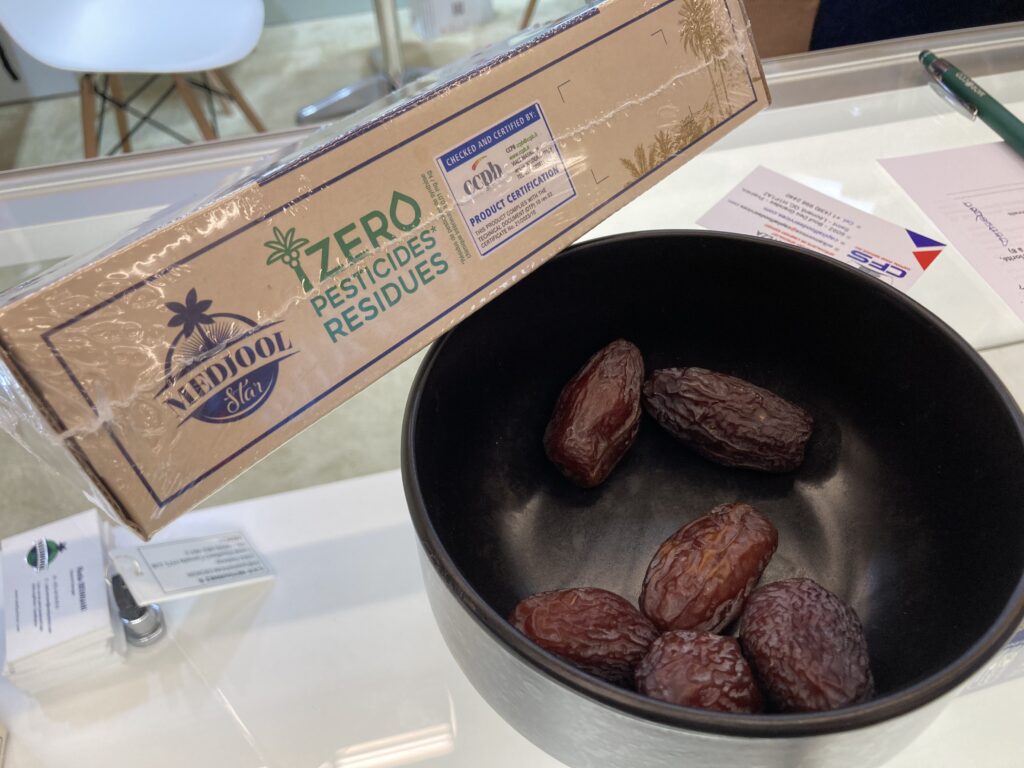
“How does the taste of these Moroccan medjools compare to Californians?” I ignorantly asked a Moroccan importer at Canada’s biggest food and restaurant import/export-heavy festival, SIAL. “Taste it,” he said. Honestly, I couldn’t tell the difference. They were just very, very good. Not too tough or dry from shipping, not too soft. Not too sweet but not too caramel or molasses. I’d need a direct comparison to know for sure, and even then, I doubt my tasting abilities. But he said there’s a world of difference because of the soil. Medjools in California (the medjool dates we see in Canada for the most part) grow in very different soils from Moroccan medjools. Instead of a bombastic sweetness, there’s more flavour to the Moroccan ones. Though subtle, it blossoms when you chew. To me, that meant I should drink tea with it, so the flavour can leach into the liquid and coat your whole mouth.
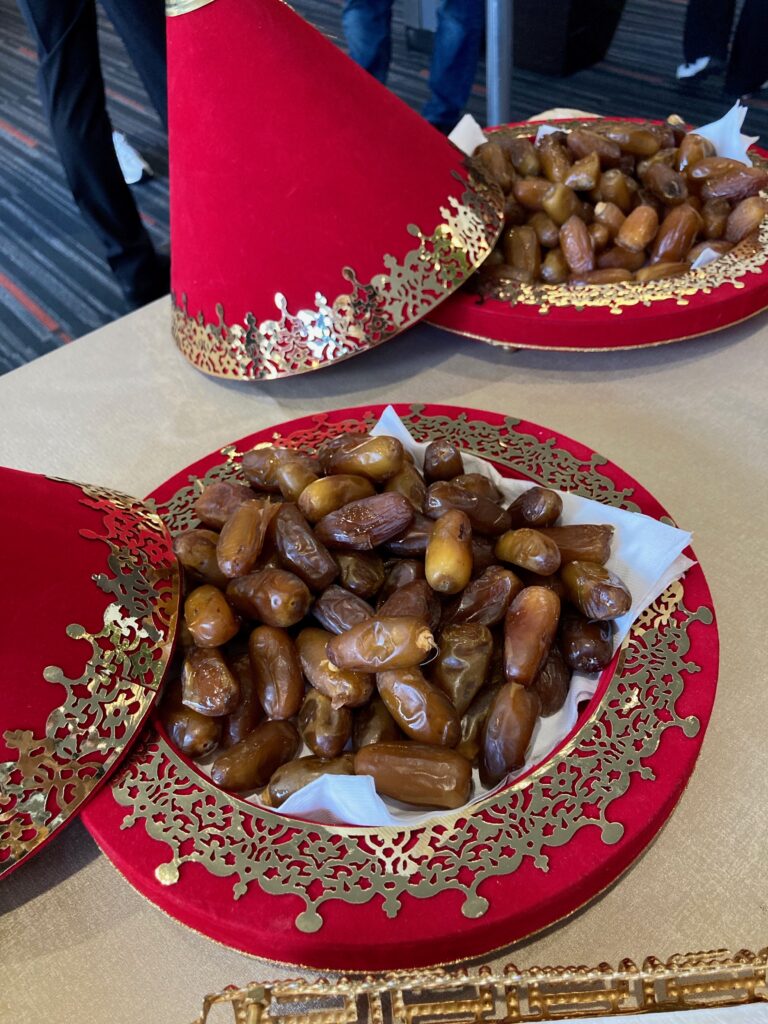
This year at SIAL, the featured country was Morrocco, which meant lots of dates, olive oil, olives, pastries and snacks. Who doesn’t love a good date? While the business folks were busy schmoozing and talking trade-barriers, I was more focused on the edible kind: Medjools, khadrawy, safawis and on-the-vine deglets. These sweet, all-natural treats range in flavour from pure sugar with a touch of fruity tang to caramelized toffee.
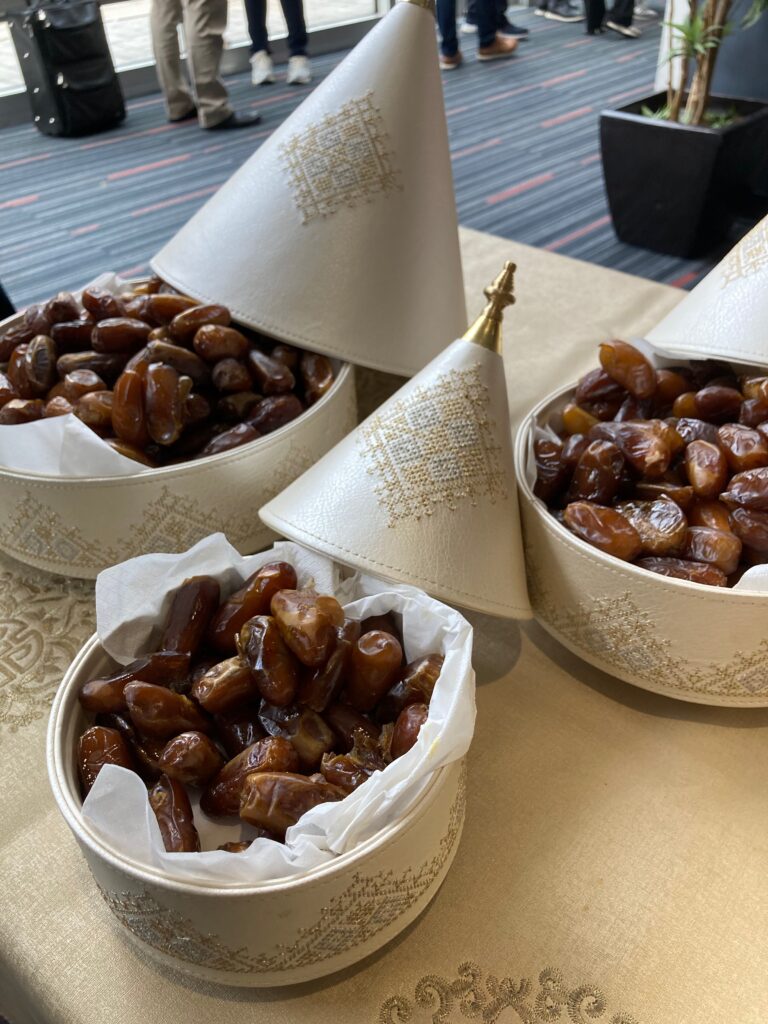
They’re nothing like the dry, pitted type you buy for making date squares, brownies or smoothies. No, no. These ones are the royalty of nibbling: They’re heavenly only when they’re oozing golden nectar. I asked what the variety of the ones above was at a media event, but all I got was “dates,” so I’m assuming they’re very common in Morocco and I’m telling you they’re heaven.
They were certainly not medjools, which is what is shown in the box below, and are particularly valuable (and expensive) to raw foodies and to those who like a more toothsome date, where your teeth sink in…and keep sinking in for a while.
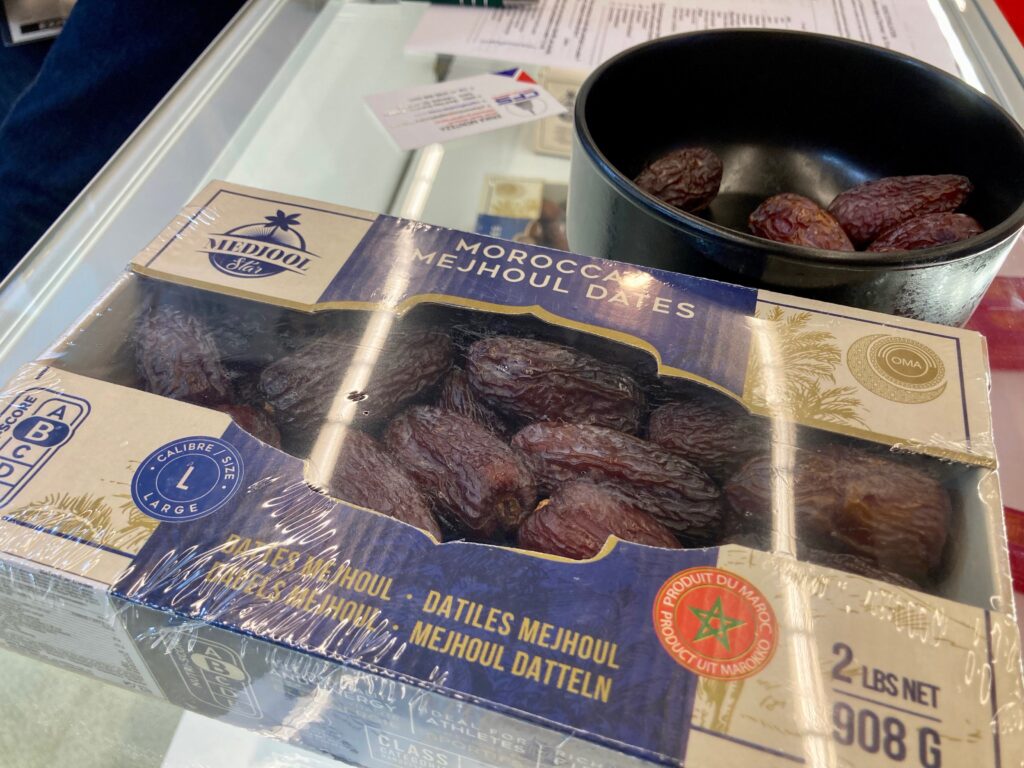
Are we going to see these Moroccan medjools on stores soon? Maybe. I’d buy them if they’re less expensive than the Californians, for sure. There’s definitely room to compete in the Canadian medjool market. And the same goes for the on-the-branch kinds I find at various health food and Tunisian and Moroccan grocery stores in Montreal. I’d love more competition there, too. Fortunately, I have seen more types of dates available at larger grocers, including Super C and Adonis, so they’re likely getting more popular.
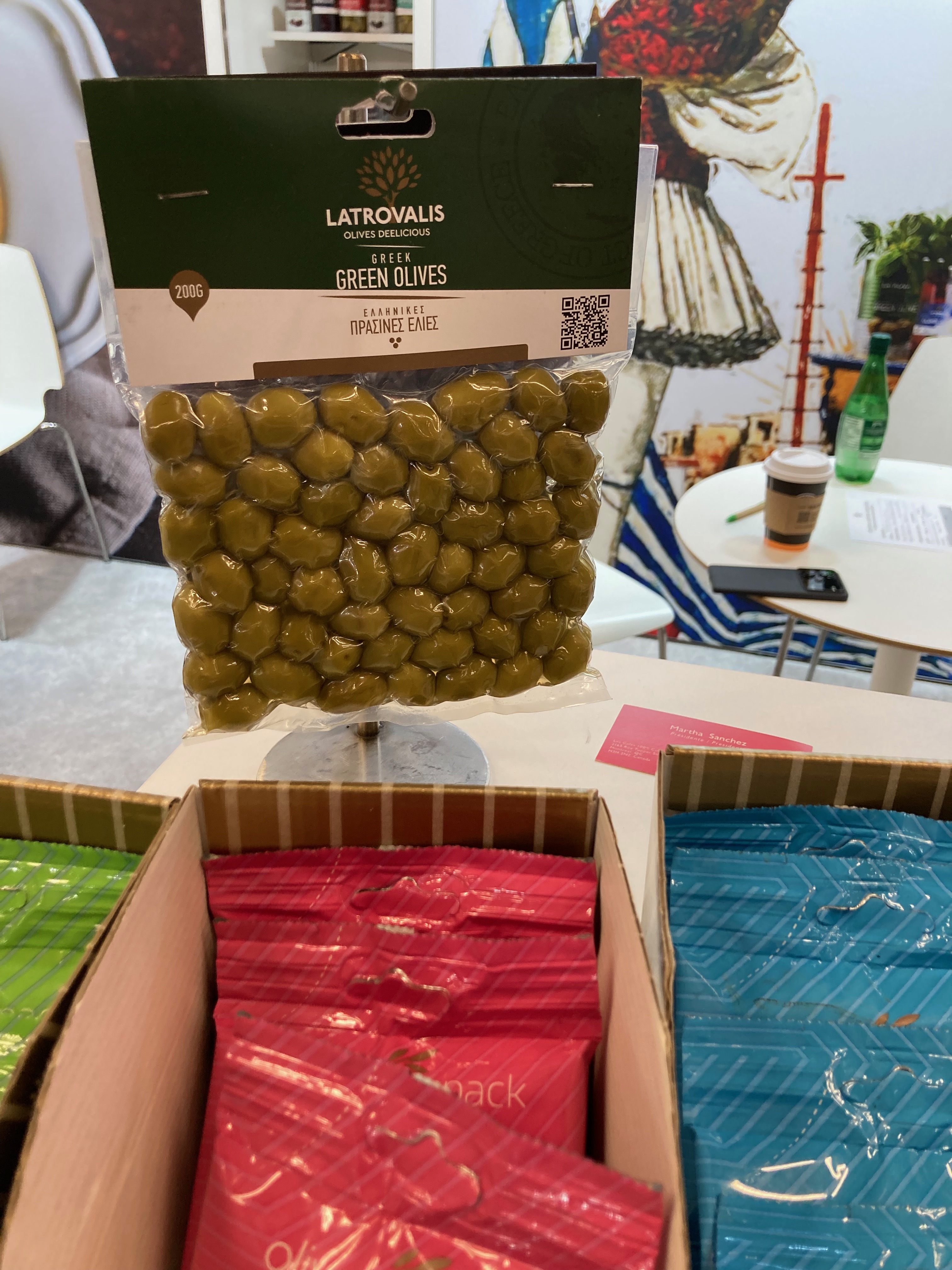
The Best Olives of My Life
I don’t say this lightly. But I’m pretty sure that the entire line of Latrovalis olives I tasted were in a league of their own. I’m very picky about olives, and what’s amazing (yes, amazing) about these is there’s no chemical aftertaste or excess salt, no need to soften the brine or the skin with oil. They. Are. Perfect. I started with the Kalamatas, which were juicy and savoury. Then the green Chalkidiki olives were a little firmer, but not tough, with the hint of bitterness of olive oil. These olives are the pure flavour of olive oil without the oil. I tried the samples on display and each one was different. Unfortunately, I can’t find these anywhere in Canada. Please, please someone import them.
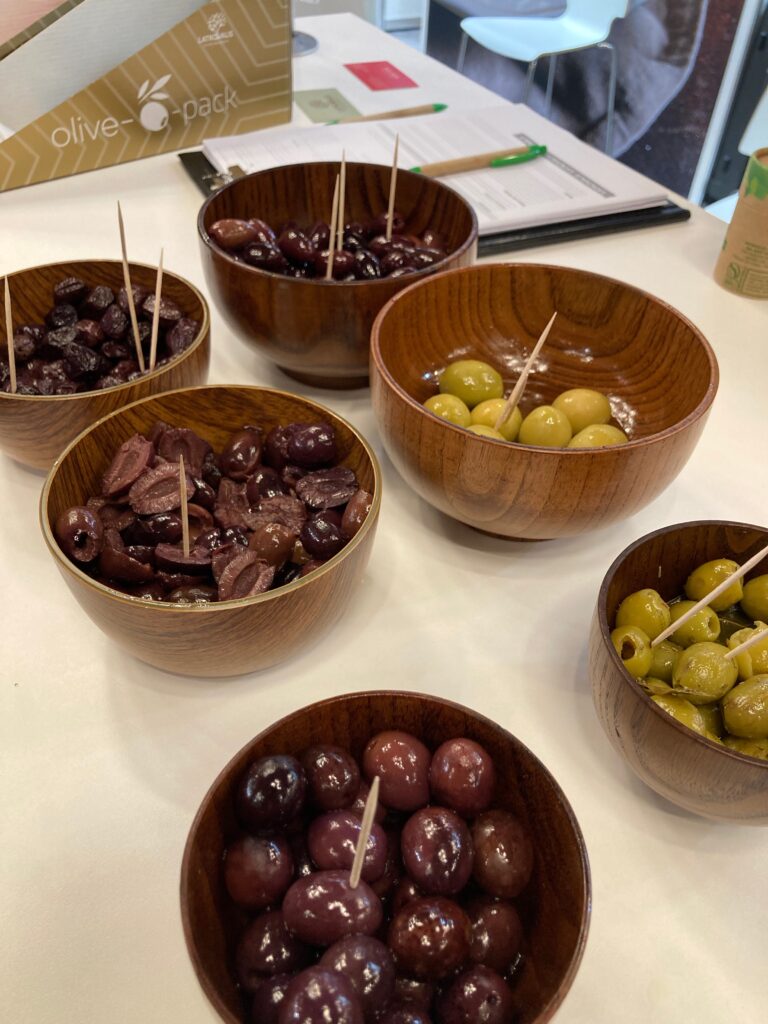
Beer Sorbets from Savo
The beer sorbets I saw form Quebec startup company Savo are certainly popular. The company’s appearance on Dragon’s Den launched them into the stratosphere with their cans of beer-spiked sorbet (strawberry daiquiri beer slush, anyone?) where you remove the lid and scoop out the dessert. Don’t try to drink it, says the rep I talked to.
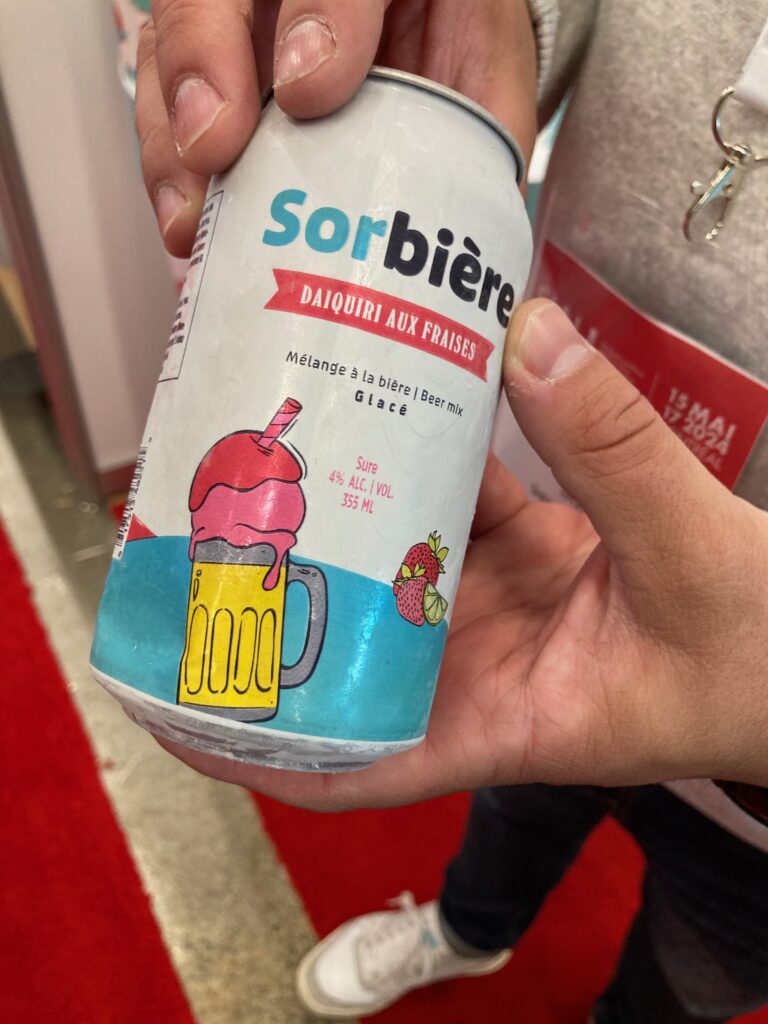
I didn’t get to try it because of my gluten-intolerance, but I did try the strawberry-basil sorbet, which was delicious in flavour although overly sticky from ice cream stabilizer. The company is partnering with microbrasseries to see direct to consumers, which means more beer pubs are going to be investing in large freezers soon…

Another great find was the rest of the Rubicon juices. I thought all of that brand had sugar added, but they have a no-sugar-added line made with just fresh and concentrate juices.
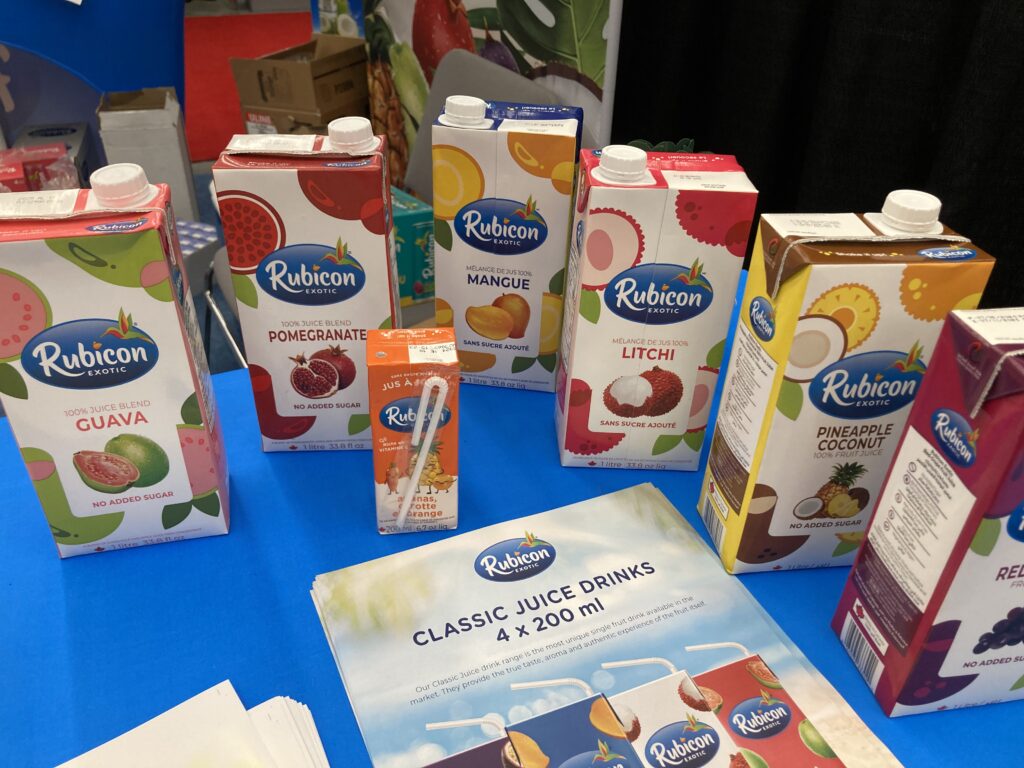
Their Lychee flavour with grape juice base was much more “lychee” than the Cera Tetra Pak I bought a few weeks ago. The mango-passionfruit was mostly mango, though, and I didn’t get to try the pure dragonfruit. (Yes, dragonfruit does have a flavour, we just don’t get it fresh in Canada so the flavour dies a little by the time it arrives, I think).
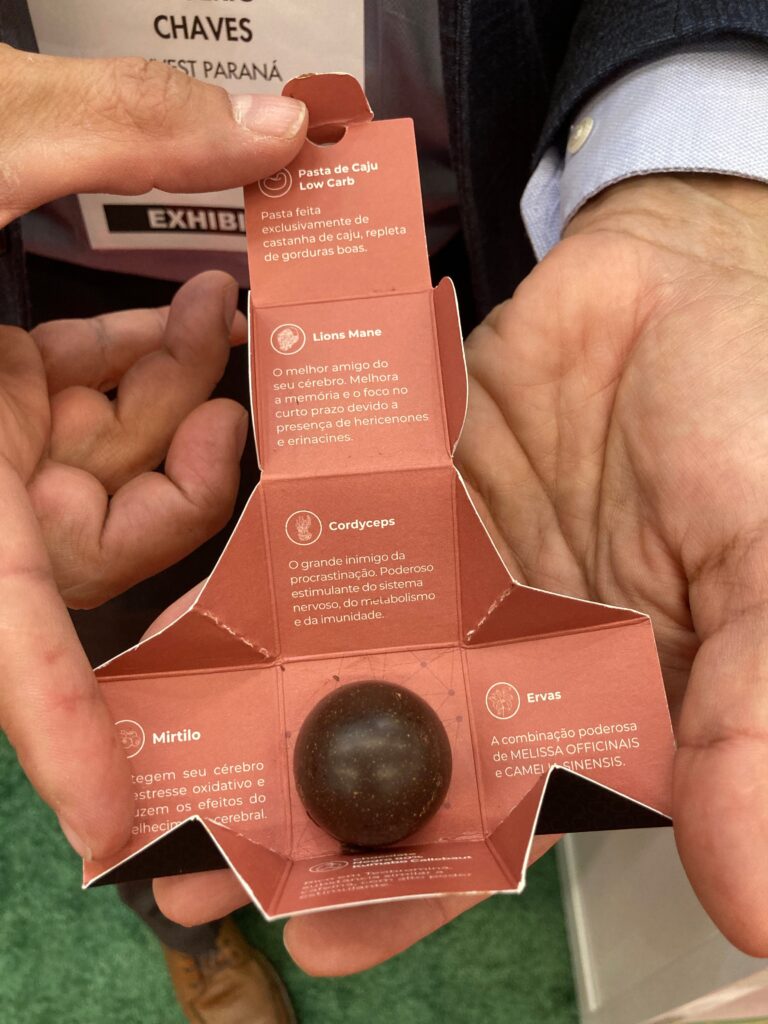
Oh! Brazilian unpasteurized honey and propolis, and chocolates made with medicinal mushrooms! Not *those* medicinal mushrooms. Lions man, cordyceps, for example. These are good-for-you sustainable chocolates and honeys. No Amazonian deforestation involved. And collected by native Brazilian stingless honey bees. Gorgeous packaging. I have a feeling Ahnima is a Brazilian health-focused company that will do well in Canada with consumers looking for something luxurious.
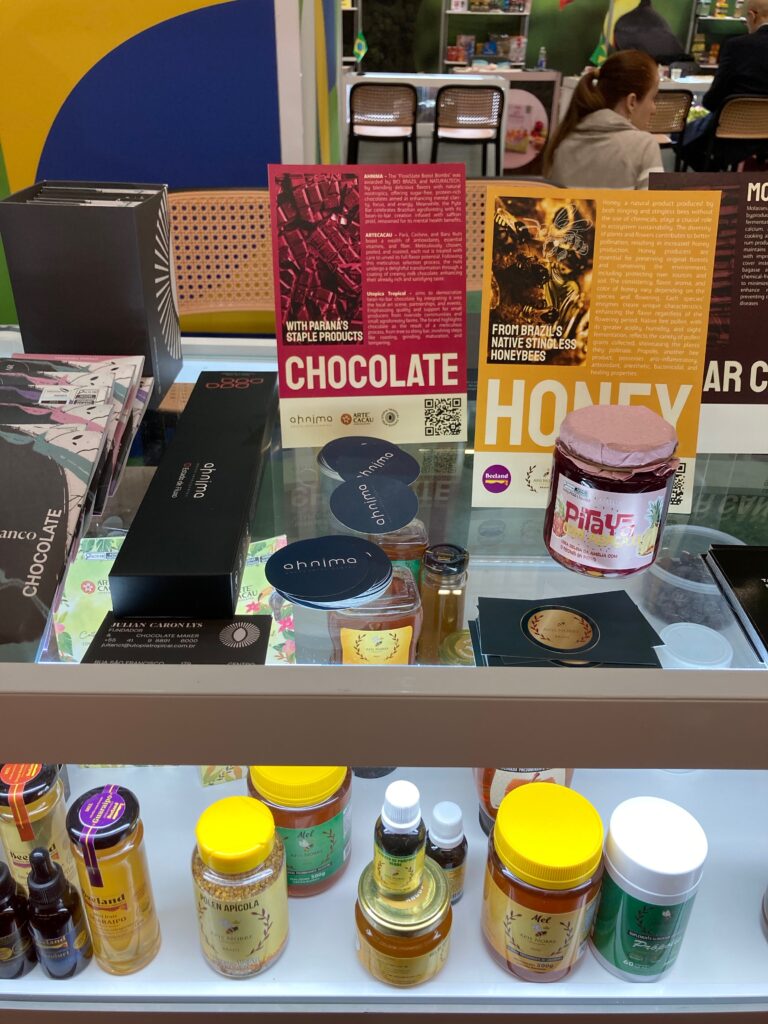
Organovita Brazilian Bordeaux Grape Juice
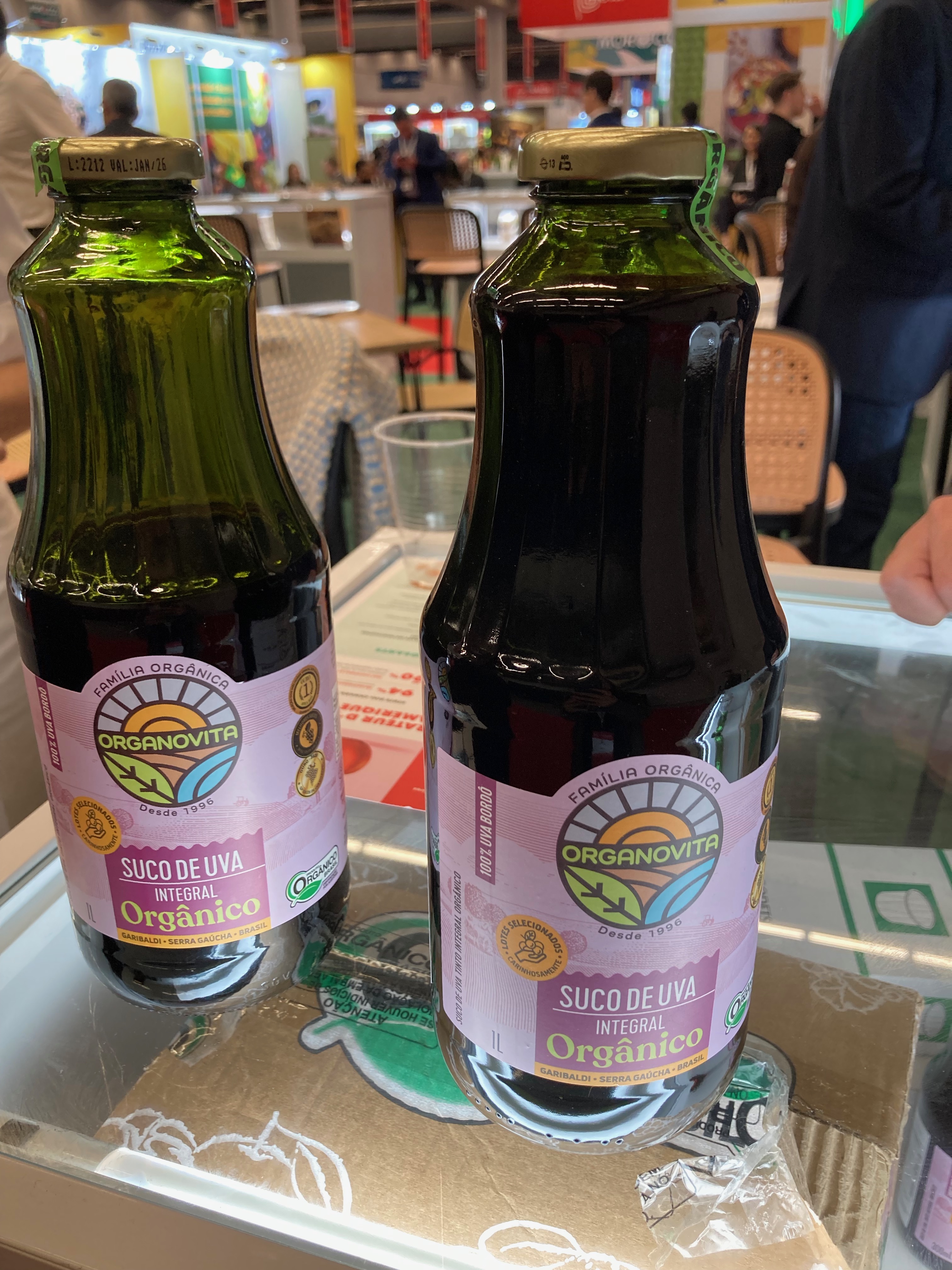
Another Brazilian company, and one I’d buy lots of if they become widely available in Canada, is Organovita, an organic grape juice made with Bordeaux grapes. There’s nothing added. No preservatives or thickening or other juices. But the coolest thing is the Bordeaux grapes because we don’t get grape juice made with those grapes in North America. The grapes are likely too expensive, or maybe they just don’t grow well here. Either way, these are very different from concords, which are lovely, but there’s just a pureness to these. I don’t know how else to describe it.
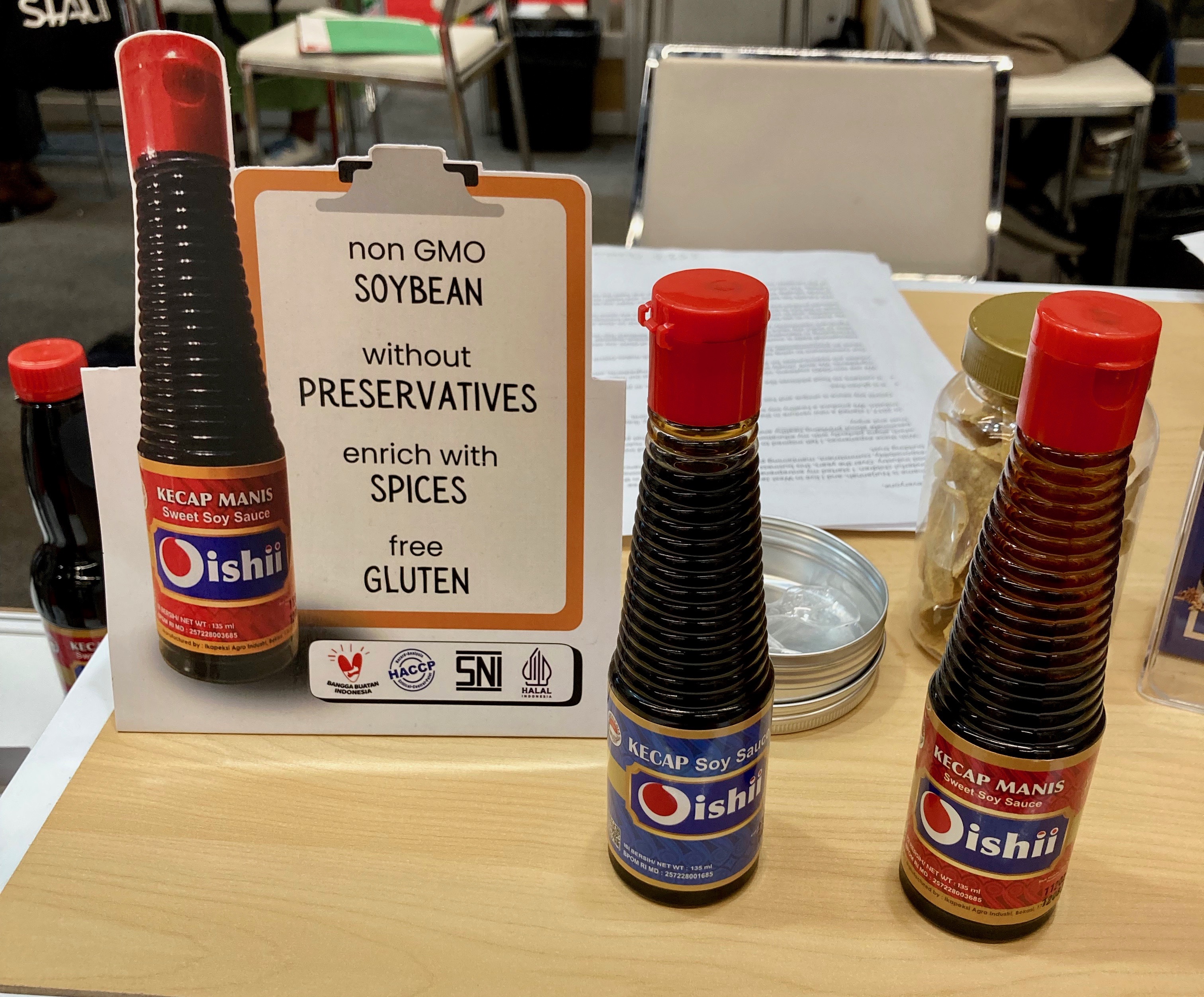
On a savoury note, I found gluten-free kecap manis! This is the sweet and thick Indonesian sauce called for in all my Indonesian recipes. I usually have to add sugar and cook down a soy sauce to thicken it as a substitute. But it turns out there’s a sweet and a salty version and they’re infused with spices, so my at-home workaround hasn’t been cutting it. I’m hoping Oishii gets distributed broadly here too, for all the Celiacs who want to branch out in their cooking.
Doglory
And here’s a kicker: Wine for dogs. Your guess is as good as mine.
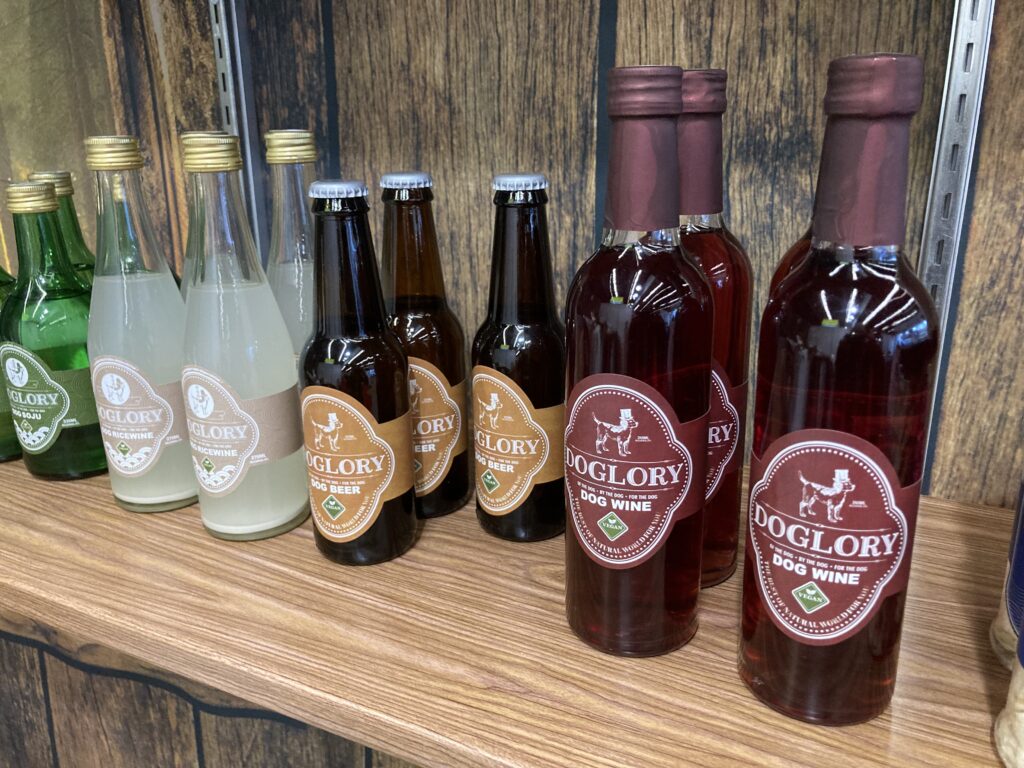
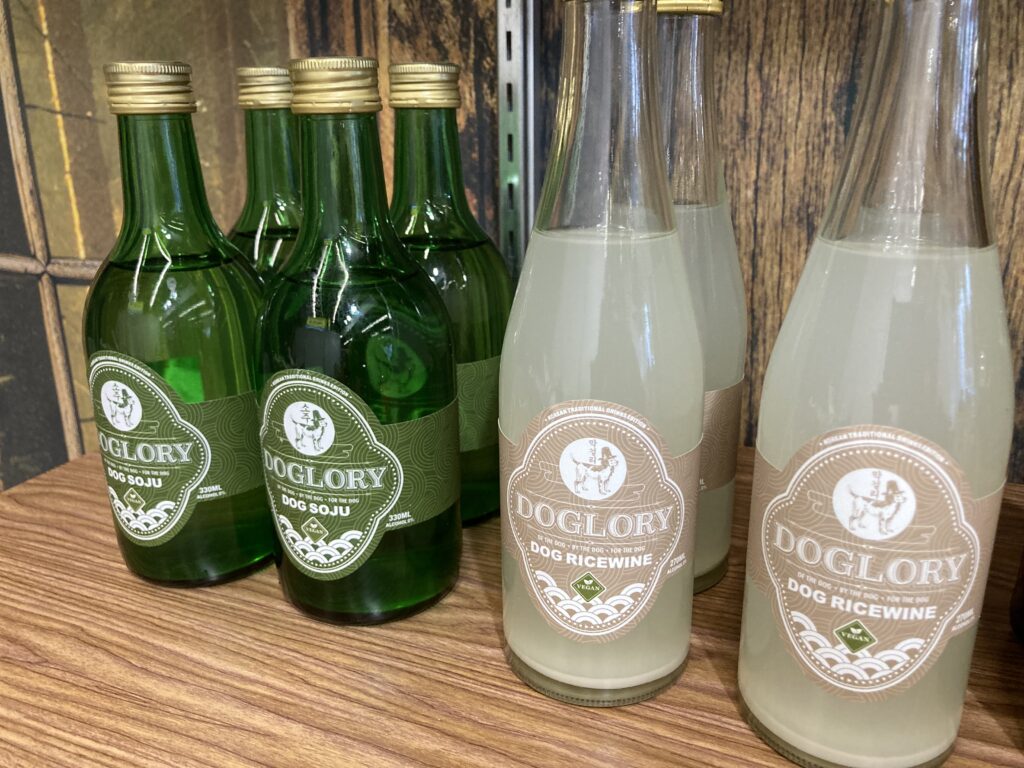
Leave a Reply